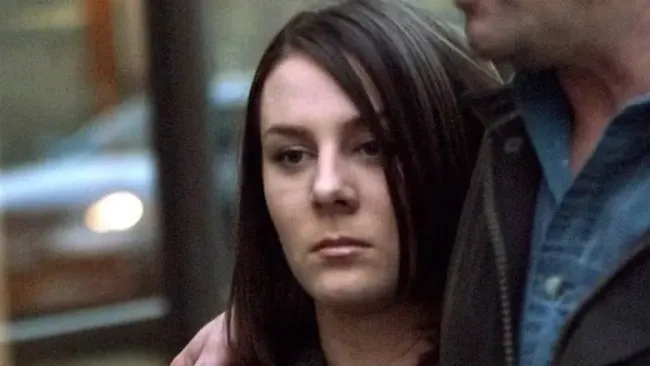Kerry Sim’s Damning Legacy: Defiance, Deception, and Delayed Remorse in the Murder of Reena Virk
In November 1997, the brutal murder of 14-year-old Reena Virk sent shockwaves through Canada, shedding light on the dark realities of teen violence and bullying. At the center of this tragedy was Kelly Ellard—now known as Kerry Sim—a figure whose name will forever be tied to cruelty, defiance, and a refusal to take responsibility. For decades, Sim's obstinate denial of her crime turned a shocking case into a prolonged legal saga.
The Conviction That Wouldn’t Stick
Sim was convicted of second-degree murder in 2000 for her role in Reena Virk’s death, a crime that horrified the nation. After a group of teens viciously attacked Reena under a bridge in Saanich, British Columbia, Sim and co-accused Warren Glowatski followed the injured girl, beat her unconscious, and drowned her in cold blood.
But Sim’s fight against accountability was far from over. In 2003, her conviction was overturned due to procedural errors, leading to two more trials. A 2004 mistrial prolonged the case, and it wasn’t until 2005 that a third trial reaffirmed her guilt. Yet even then, Sim refused to take responsibility, insisting she wasn’t the one who killed Reena. Her defiance was more than just a legal maneuver—it was a pattern of denial. While Glowatski expressed remorse and sought forgiveness, Sim clung to her lies, showing no empathy and treating the justice system as if it were a game.
Prison, Parenthood, and No Accountability
Sentenced to life in prison, Sim’s behavior behind bars only furthered her image as someone who refused to accept the consequences of her actions. She gave birth to two children through conjugal visits, which sparked public outrage. Psychological assessments repeatedly classified her as a “moderate to high-moderate risk for future violence,” and in 2005, a judge warned, “You will not rehabilitate; you will be forever stalled in this nightmare which you have created.”
The judge’s words proved prophetic. Even after being granted parole in 2017, Sim continued to violate her conditions. She tested positive for codeine, faced allegations of domestic violence, and repeatedly breached curfews. Each time, she blamed stress, financial strain, and single parenthood, but the truth was clear—Sim wasn’t struggling to rehabilitate; she simply didn’t care.
A Convenient "Change of Heart"
For years, Sim showed no remorse for her crime. Then, in 2024—during yet another parole review—she suddenly claimed the crime was “horrendous” and expressed concern that Hulu’s true-crime series Under the Bridge might “re-victimize” Reena’s family. The parole board noted “some remorse and victim empathy,” which was a stark contrast to her previous defiance. But the question remains: Was this a genuine shift in her attitude, or just another manipulative strategy to secure parole?
A Legacy of Pain, Not Redemption
For Reena Virk’s family, Sim’s name is a symbol of pain and suffering. Reena’s mother, Suman Virk—who passed away in 2018—forgave Glowatski but endured years of media scrutiny and Sim’s unyielding defiance. Each time Sim breached parole, it reopened old wounds for the family, serving as a constant reminder of the trauma they’ve lived with for decades. Sim’s recent claims of remorse do little to ease the ongoing stress and anxiety she caused the Virk family.
No Redemption—Only Repeated Failure
Kerry Sim’s story is not one of rehabilitation or redemption; it is a tragic reminder of defiance, deception, and missed opportunities. Her arrest in January 2025 for another parole violation confirms what many have long known: Sim was never truly interested in making amends. While Glowatski has worked toward accountability, Sim remains a cautionary tale about the consequences of refusing to face the truth.
Reena Virk’s memory lives on through anti-bullying advocacy and artistic representations, but one question remains: Can someone like Kerry Sim ever truly change? If the past is any guide, the answer is clear—no.
